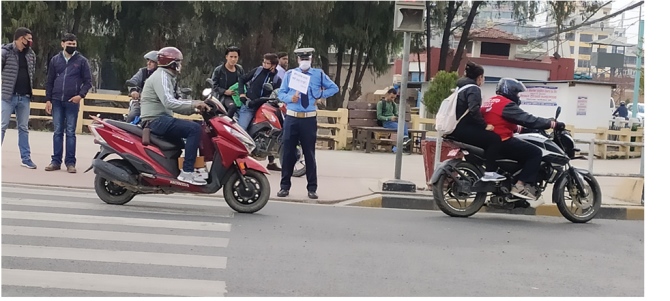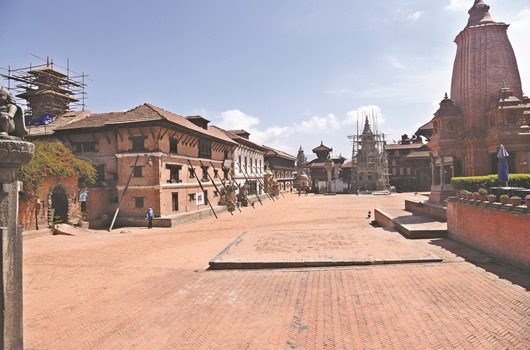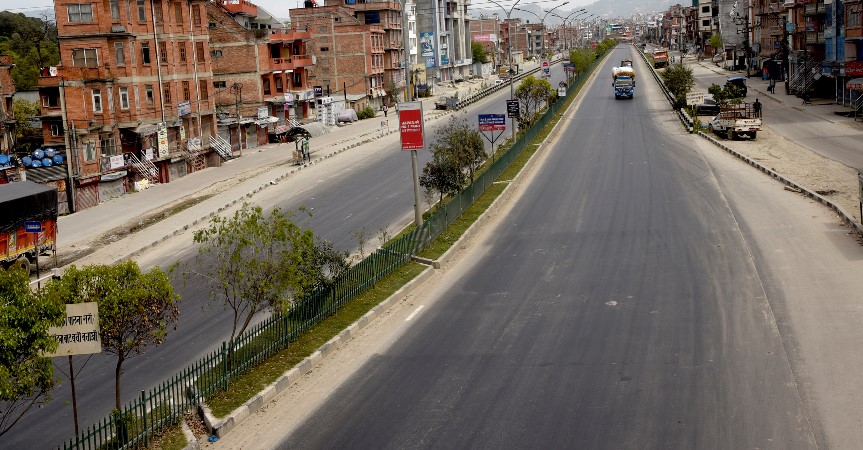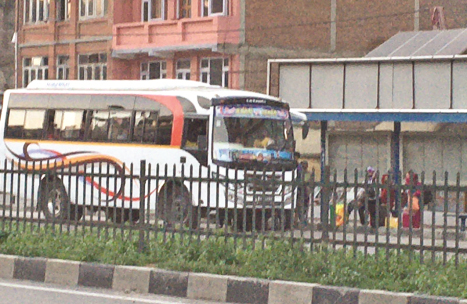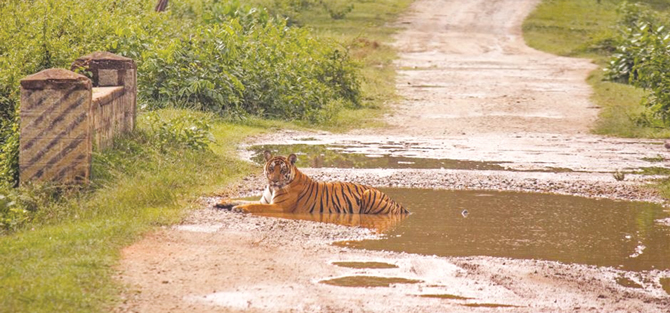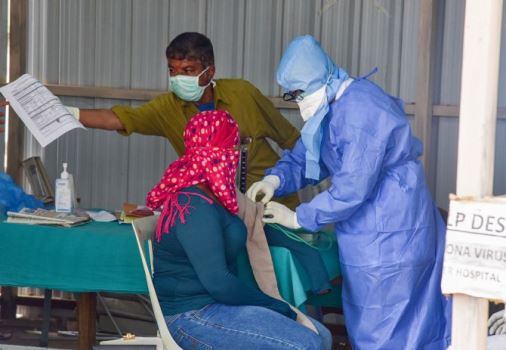BNP wins award for doubling tiger population
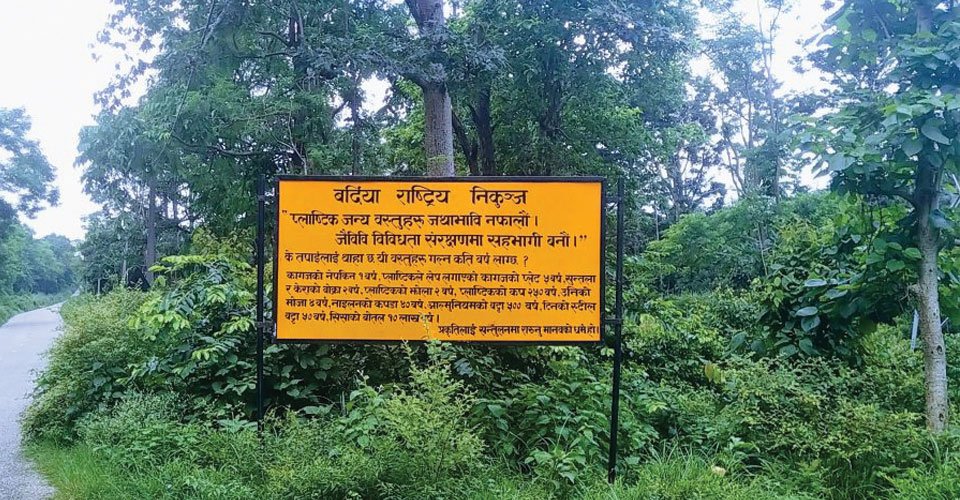
Kathmandu, Jan. 29: Bardia National Park (BNP), Bardia, has won this year’s TX2 Award (Global Tiger Recovery Plan) for doubling population of wild tigers since 2010.
Sathyamangalam Tiger Reserve in Erode District in the Indian state of Tamil Nadu is the co-winner of the Award.
A second award for Tiger Conservation Excellence will be presented to Khata Forest Conservation Area in Nepal, which secures transboundary connectivity for tigers between Nepal and India.
The awards celebrate the upcoming launch of the 2022 Lunar Year of the Tiger. In September, tiger range countries will meet at the second Global Tiger Summit in Vladivostok in Russia to assess progress towards the ambitious TX2 goal - to double the number of tigers in the wild - and to identify tiger conservation priorities for the next 12 years, according to the World Wildlife Fund (WWF).
According to Bishnu Prasad Shrestha, chief conservation officer at the BNP, this is an achievement made with the concerted efforts of BNP staff, Nepal Army, organisations working in conservation sectors, local community and three tiers of government.
Tigers in the BNP have increased by almost five-fold from 18 in 2009 to 87 in 2018 - an astounding achievement, given its location in one of the most densely populated regions of the world.
The award is a global recognition and it will help in more conservation efforts as well as an increase in the tourism sector of the park, Shrestha said. “The award motivates us to work more in the conservation sector and will make us more responsible for tiger conservation and habitat management,” he added.
Shrestha said that there were challenges to the human-tiger conflict in the area and was working to minimise the conflict by formulating a “Five-Year Strategic Plan for Human-Wildlife Conflict Reduction and Management in Bardia National Park and its environs”.
According to the park, 12 people were killed in a tiger attack in the fiscal year 2021/22 in Bardiya, of them, seven were killed outside the BNP buffer zone. Three people have died in the tiger attack in the current fiscal year so far, Shrestha said.
The first global tiger summit was held in St. Petersburg, Russia in 2010. In the summit, 13 tiger range countries - Bhutan, Nepal, Vietnam, Myanmar, Malaysia, Indonesia, China, Russia, Bangladesh, India, Thailand and Laos - had pledged to double the tiger population by 2022.
With only about 3200 Tigers in 2010, the summit outlined a plan to double the numbers by the next Tiger lunar year, 2022. The tiger range leaders endorsed the Global Tiger Recovery Programme to strengthen reserves, a crackdown on poachers and provide financial incentives to maintain a thriving tiger population.
The co-winner of the TX2 Award, Sathyamangalam, designated a Tiger Reserve in 2013, was home to only 25 tigers in 2011 but today there are an estimated 80 in the area. Sathyamangalam Tiger Reserve, located in the Western Ghats Biodiversity Hotspot, connects two other protected areas, supporting one of the most important and largest tiger populations in the world, according to a WWF press statement.
The second winner Khata corridor is a community-based conservation effort, including a network of 74 community forests covering 202 square kms, have secured safe passage for tigers between Bardia National Park in Nepal and Katarniaghat Wildlife Sanctuary in India. Over the last five years, 46 individual tigers have been detected using the corridor together with other iconic and threatened mammal species including the Asian elephant and the greater one-horned rhino.
The awards are presented by the Conservation Assured Tiger Standards (CA|TS), Fauna and Flora International (FFI), Global Tiger Forum (GTF), IUCN’s Integrated Tiger Habitat Conservation Programme (ITHCP), Panthera, UNDP, The Lion’s Share, Wildlife Conservation Society (WCS) and WWF, reads the statement.
According to the latest report released in 2018, there are 235 big cats in the country, up from 121 in 2009.
Recent News

Do not make expressions casting dout on election: EC
14 Apr, 2022
CM Bhatta says may New Year 2079 BS inspire positive thinking
14 Apr, 2022
Three new cases, 44 recoveries in 24 hours
14 Apr, 2022
689 climbers of 84 teams so far acquire permits for climbing various peaks this spring season
14 Apr, 2022
How the rising cost of living crisis is impacting Nepal
14 Apr, 2022
US military confirms an interstellar meteor collided with Earth
14 Apr, 2022
Valneva Covid vaccine approved for use in UK
14 Apr, 2022
Chair Prachanda highlights need of unity among Maoist, Communist forces
14 Apr, 2022
Ranbir Kapoor and Alia Bhatt: Bollywood toasts star couple on wedding
14 Apr, 2022
President Bhandari confers decorations (Photo Feature)
14 Apr, 2022



